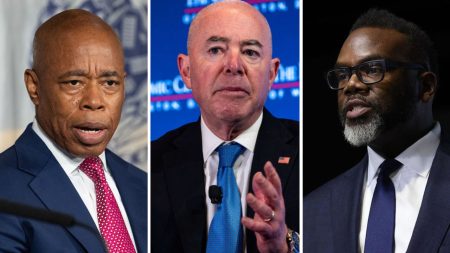The Supreme Court has allowed Texas to enforce age-verification requirements for pornography websites, rejecting a request from the adult entertainment industry to block the law on First Amendment grounds. This law requires websites with a significant amount of content harmful to minors to verify user ages, which the challengers argue violates free speech rights online. The trade group representing the industry filed an appeal at the Supreme Court and requested the law be blocked while the appeal is considered, but the court did not provide an explanation for its decision on Tuesday.
The 5th US Circuit Court of Appeals had previously ruled in a 2-1 decision that Texas has a legitimate interest in preventing minors’ access to pornography and allowed the law to go into effect. The Supreme Court’s decision to not block the law follows this ruling. In contrast to a previous 1997 Supreme Court decision that invalidated provisions of a federal law aimed at protecting minors from indecent material online due to First Amendment concerns for adults, the 5th Circuit relied on a 1968 precedent that upheld a New York law prohibiting the distribution of obscene material to minors.
The appeals court emphasized the potential harm that access to pornography can cause to children and noted that it is difficult to determine whether an internet user is an adult or a child. As a result, any attempt to identify users will inevitably impact adults in some way. The adult entertainment industry argued that the law forces adults to identify themselves before accessing pornography, thereby violating their right to free speech online. However, the Supreme Court’s decision to allow Texas to enforce the age-verification requirements for porn sites suggests that preventing minors’ access to harmful material takes precedence.
The Supreme Court’s decision on this matter was made without explanation, as is common for decisions on its emergency docket. The lack of any noted dissents indicates that the court was in agreement on this ruling. The underlying appeal of the law is still pending, indicating that there may be further legal challenges to come. The trade group representing the adult entertainment industry will likely continue to push back against the law, arguing that it places undue burdens on adults’ access to online content.
Overall, the Supreme Court’s decision to allow Texas to enforce age-verification requirements for porn sites highlights the ongoing debate over the balance between protecting minors from harmful content online and upholding adults’ free speech rights. The court’s reliance on previous precedents and the legitimate interest of the state in preventing minors’ access to pornography informs their decision in this case. The outcome of this legal battle will likely have implications for future regulations concerning online content and free speech rights.















